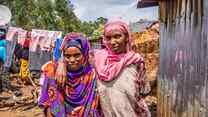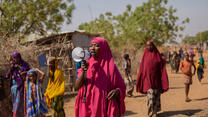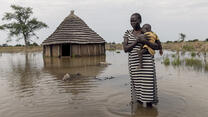U.S. humanitarian leadership under a future Administration will face a challenging humanitarian aid environment. For the past four years, the international humanitarian system has grown only more overstretched, and the gap between financing and requirements is only widening due to COVID-19. At the same time, a racial reckoning in the U.S. has inspired and elevated discourse around de-colonizing aid and shown a light on the limited progress of the localization agenda.
A future Administration will also take office after USAID has emerged from a significant and drawn-out reorganization, while the Bureau for Refugees and Migrants (PRM) has been decimated. New leadership should avoid a wholesale restructure of U.S. humanitarian assistance and instead focus on improvements in U.S. policy and practice that will have an outsized impact for the people most in need.
The International Rescue Committee recommends a future Administration take-up the following agenda to modernize the humanitarian sector:
- Drive towards increased localization and inclusion. To make the localization agenda a reality and support the decolonization of foreign aid, the USAID and PRM should support and fund the meaningful integration of refugees into host communities through inclusion in national laws; strengthen national systems; work closely with local partners to identify and implement local solutions; and reform compliance requirements that currently hinder more and better partnerships with local institutions.
- Improve efficiency and effectiveness of humanitarian operations by: reducing impediments to humanitarian access, delivery and localization; increasing multiyear humanitarian financing; aligning funding to outcomes; improving USAID’s gender equality policy; enhancing joint planning and streamlining reporting requirements; and developing and refining joint messaging for UN agencies.
- Lead on critical UN reforms, most importantly by: moving UN agencies towards outcome-oriented humanitarian responses; pushing for UN agencies to pass on multiyear, flexible financing to partners; and improving UN agencies’ financial transparency.



